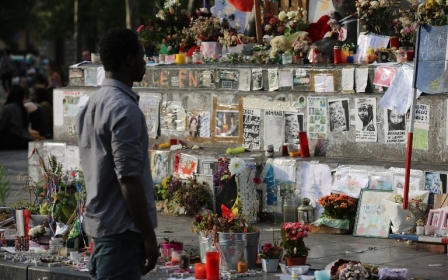Normandy killer denied entry, deported from Turkey: official

Turkey denied entry to and then quickly deported the man alleged to have murdered a priest in the town of Normandy in France this week, a Turkish official has said on Thursday.
Adel Kermiche, the 19-year-old accused of slitting the throat of the 86-year-old priest, attempted to travel to Turkey in May with hopes of reaching the Islamic State group in Syria,” the official said.
“We were informed by the French on 12 May 2015 that Adel Kermiche intended to travel from Geneva to Istanbul's Sabiha Gokchen airport under the name Kevin Kermiche,” he said.
“He was denied entry into Turkey on 14 May and France was informed of his deportation. Interpol dropped the search warrant for him on 12 May 2015. The French told Turkey that he was a terror suspect. We believe he intended to travel to Syria.”
Kermiche was then electronically tagged in France and was awaiting trial on terrorism charges when he reportedly deactivated his monitoring device and snuck off to carry out the attack.
Earlier this year, Turkey also revealed that it had detained and deported Ibrahim El Bakraoui, one of the attackers behind the Brussels airport bombing in which 14 people were killed, only to have had European authorities let him slip through the net.
The West has repeatedly accused Turkey of not doing enough to stop militants from crossing its borders into Syria and Iraq, although Turkey has always denied this.
France remains on high alert after Mohamed Lahouaiej Bouhlel ploughed a truck into a crowd of people celebrating Bastille Day in Nice, killing 84 people and injuring over 300.
The July 14 killings was the third major terror attack in France in little more than 18 months.
French security services have come under attack for the repeated incidents.
Annie Geslin, who worked with Kermiche's mother for many years, told AFP "he was the youngest child and had psychological problems."
Kermiche’s father reportedly told police he was a religious fanatic, while his sister said that it "took two months (for him to become radicalised) and he was no longer my little brother."
"It was religion above everything," she said. "I don’t know what happened to him, it was a real brainwashing.”
“It took two months (for him to become radicalised) and he was no longer my little brother. It was religion above everything … I don’t know what happened to him, it was a real brainwashing.”
Stay informed with MEE's newsletters
Sign up to get the latest alerts, insights and analysis, starting with Turkey Unpacked
Middle East Eye delivers independent and unrivalled coverage and analysis of the Middle East, North Africa and beyond. To learn more about republishing this content and the associated fees, please fill out this form. More about MEE can be found here.




